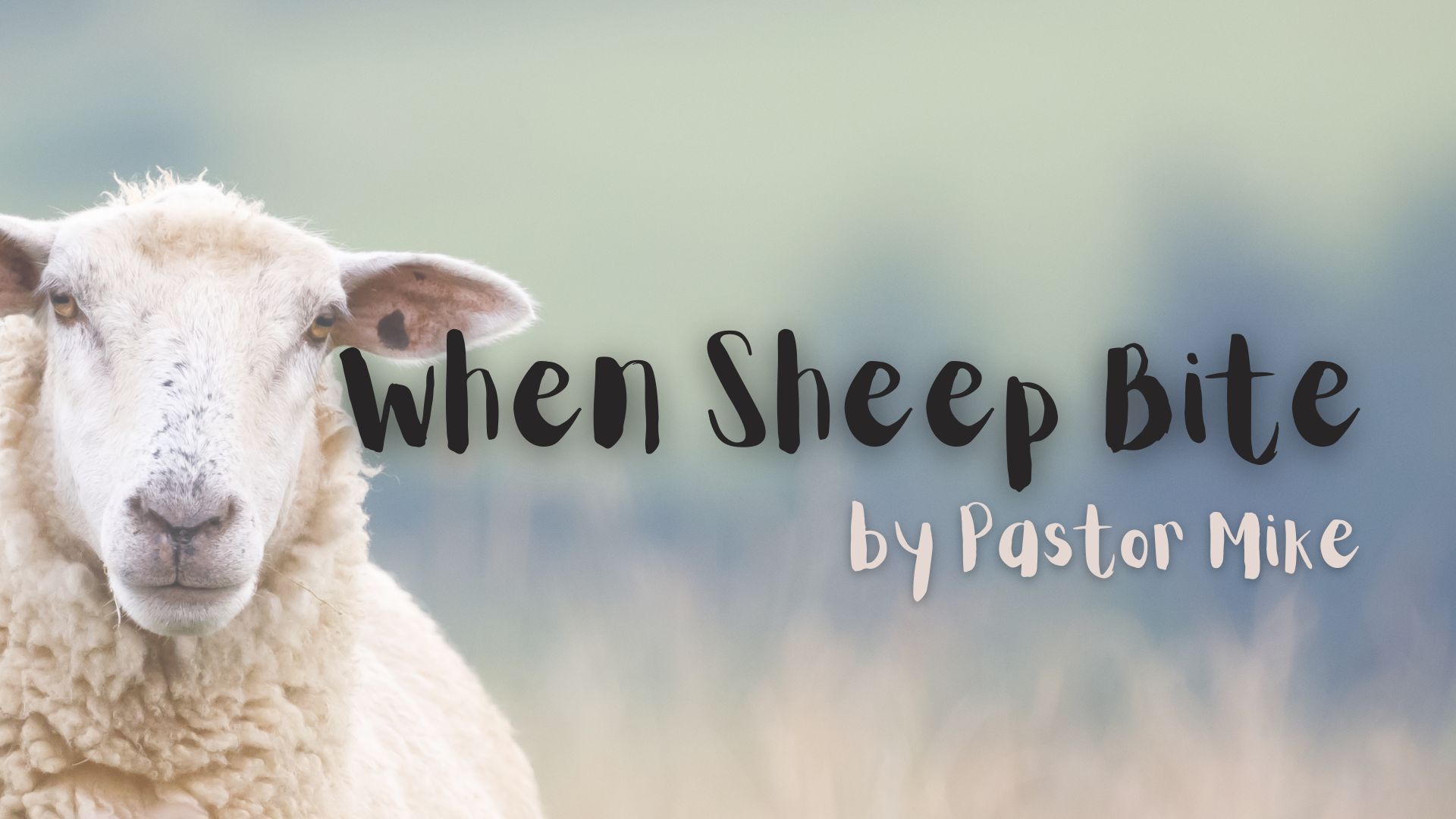In John 10, Jesus gives us an incredibly comforting image when he says, “I am the good shepherd. I know my own and my own know me, just as the Father knows me and I know the Father; and I lay down my life for the sheep.” In this statement, we hear the voice of compassion and care that is associated with our Good Shepherd. He knows us, loves us, and is willing to sacrifice his own life for his sheep. Therefore, inside the sheep pen, we can find security and comfort because of our shepherd. He will never hate us or harm us because he is holy and good.
But what about all the other sheep?
If you’ve been in the church for any amount of time, chances are you’ve been frustrated or even harmed by those who claim to be Christian. In some cases, these wounds may be from unbelievers masquerading as sheep, but many times these wounds come from true followers of Christ whose sin or ignorance cause us personal pain and heartache. I’m not referring to times when a fellow parishioner didn’t smile as they passed you in the hall or made last-minute changes to your after-church plans without telling you. I’m speaking of Christ following sheep who react to you with harsh words spoken in anger. I’m thinking of the sheep who decide to gossip about you or reveal intimate details about your personal struggles with others.
Sheep bites hurt, but how we respond in those moments is critical for the health of the church.
In the book of Galatians, the Apostle Paul writes, “For the whole law is fulfilled in one word: “You shall love your neighbor as yourself.” But if you bite and devour one another, watch out that you are not consumed by one another. (Gal 5:14-15)”
In this passage, Paul contrasts interactions between Christ’s sheep. One way of interacting inside the sheep pen, is in accordance with the scriptures. It involves a love for people that is on par with the love that we have for ourselves, but more so, it is a love that encapsulates the entirety of the law. The other option is allowing anger, hatred, and personal vengeance to guide our response, ultimately leading to great harm and division.
Peter puts it another way in 1 Peter 4:8, “Above all, keep loving one another earnestly, since love covers a multitude of sin.” Earnest love is an intentional, enduring love. It’s serious in nature, resembling the love of Christ who “loved us and gave himself up for us (Eph 5:2).“ This is not to say that correction and rebuke are absent from the sheep pen, indeed they are an important part of life as a Christian. Peter’s admonition is not that we never confront the sin of another sheep, but that we be self-controlled and sober-minded about it (1 Peter 4:7). In those interactions, we should never allow for sinful anger or selfish ambition to trump our love for one another.
How we interact often begins with the “glasses” we are wearing. Do the lenses we use highlight the sins of others or something else?
While the idea of sheep wearing glasses is quite humorous, I think this analogy may be beneficial. In fact, it may help us respond better the next time one of Christ’s sheep bites a chunk out of our arm. Consider what Paul writes in 2 Corinthians 5:16-17:
From now on, therefore, we regard no one according to the flesh. Even though we once regarded Christ according to the flesh, we regard him thus no longer. Therefore, if anyone is in Christ, he is a new creation. The old has passed away; behold, the new has come.
We are children of God, which means we should not ultimately be labeled in accordance with our old life of sin, but rather according to our new life in Christ.
Most of us are familiar with verse 17, because we celebrate the new life we have in Christ. We rejoice that we have been born again into a living hope (John 3). We were crucified with Christ and therefore our old self no longer lives (Gal 2). We are a holy priesthood, a chosen race, and a holy nation (1 Peter 2). We are children of God, which means we should not ultimately be labeled in accordance with our old life of sin, but rather according to our new life in Christ.
Therefore, let us first see one another according to Christ’s work and not the sin that clings to our flesh. Let us place the label of “redeemed” on that sister that hurt us, rather than the term “gossiper”. Let us categorize our struggling brother as “God’s own possession” rather than immediately dismissing him as “lazy”. Then, with Christ-colored lenses guiding our vision, we can love the sheep around us with patience and gentleness, understanding that we need the same love extended to us that we are commanded to extend to others.


